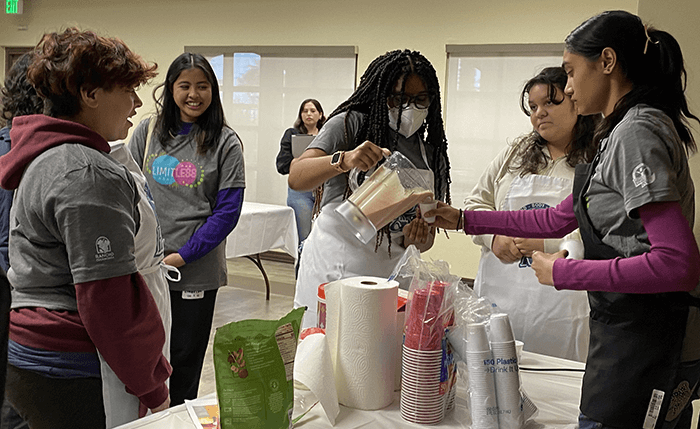By: Megan Holdaway, RDN

Whether at the height of cold and flu season or due to a global health crisis, a healthy immune system provides a defense against harmful pathogens and plays a critical role in shortening the duration and severity of certain illnesses. Although illnesses can’t be entirely prevented from occurring, there are practical steps that can be taken to stay healthy when the likelihood of getting sick is increased. Practicing good hygiene, especially handwashing, is the most effective way to prevent the spread of illness. Other actions that support overall health include consuming a variety of healthy foods, staying hydrated, being physically active, prioritizing mental health, and practicing food safety.
Nutrition plays a role in supporting immunity, but there isn’t a particular diet or food that creates a healthy immune system. Rather, a pattern of nutritious choices will support health and overall well-being. Healthy eating patterns are built on daily food and beverage choices, and emphasis should be placed on eating a wide variety of unprocessed or minimally processed foods while reducing refined starches, added sugars, processed meats and other highly processed foods. High-quality and nutritious foods include fruit, vegetables, milk, cheese, yogurt, whole grains, beans, nuts, seeds, fish, lean meat, poultry, eggs, healthy fats and oils.
Dairy foods such as milk, cheese and yogurt can play an important part in a healthy eating pattern. The nutrients in dairy foods work together to produce unique health benefits that are different from plant-based foods and other animal-source foods. Scientific research continues to link milk and dairy foods to a wide range of health benefits, including blood pressure control, improved bone health and reduced risk of diabetes and heart disease. For children and adolescents, consuming dairy foods is essential to growth and development.
Some of the nutrients that are found in dairy foods play a role in normal immune function. Though consuming these nutrients in isolation isn’t proven to prevent illness, incorporating foods that contain these nutrients may support the immune system. Vitamin A, vitamin D, zinc and protein have specific roles within the immune system:
Establishing an eating pattern that includes nutrient-rich milk and dairy foods contributes to improved health and well-being in both children and adults.
Dairy products such as yogurt and certain cheeses also contain probiotics, small microorganisms that are gaining attention for their positive impact on health. Eating yogurt and other fermented foods may improve gut health, which research shows helps increase immunity and reduce inflammation. One study of adults found that probiotics reduced the number of upper respiratory infections and reduced flu-like symptoms when they drank a probiotic-rich yogurt drink. In preschool children, a diet that included probiotics everyday led to reduced cold and flu symptoms and fewer absences from school.
Consuming probiotics also has an impact on mental health, an area of research that is continuing to evolve. Probiotics are being studied for their ability to reduce anxiety, relieve stress and improve mental outlook. Prioritizing mental health and self-care, including making healthy food choices, play an important role in supporting a healthy immune system and improving its function.
Key Points:

Megan Holdaway, RDN
Megan Holdaway, RDN
Megan Holdaway is a registered dietitian nutritionist and the Nutrition Science Program Manager at Dairy Council of California.
In today's society, it's vital to engage teenagers in experiential nutrition education to guide them toward making nutritious food choices.

The Let’s Eat Healthy Community Grant program provides community health organizations funding to enhance programs within their communities.

Subscribe to our blog to stay up to date on the latest news, products, and more.